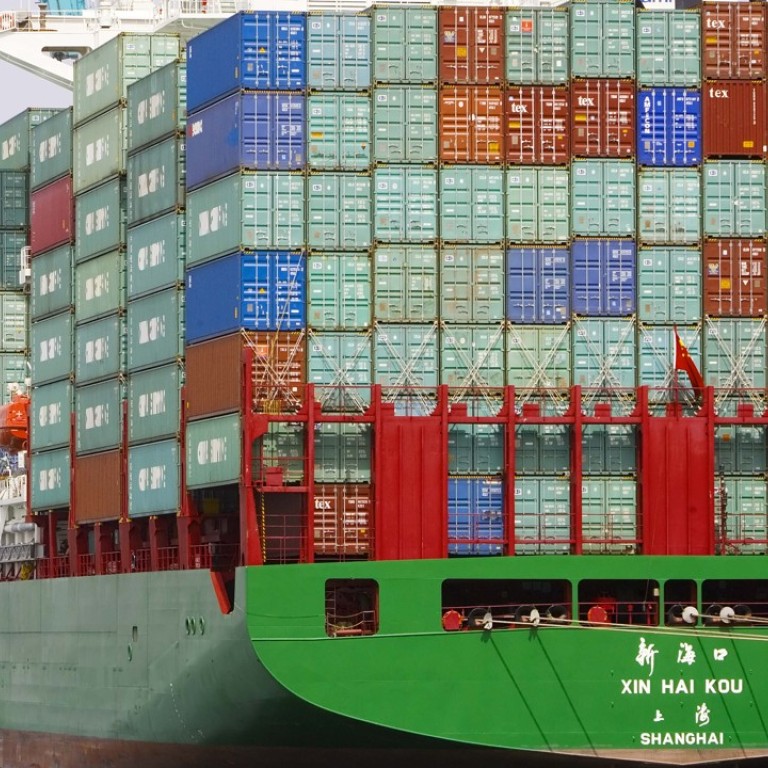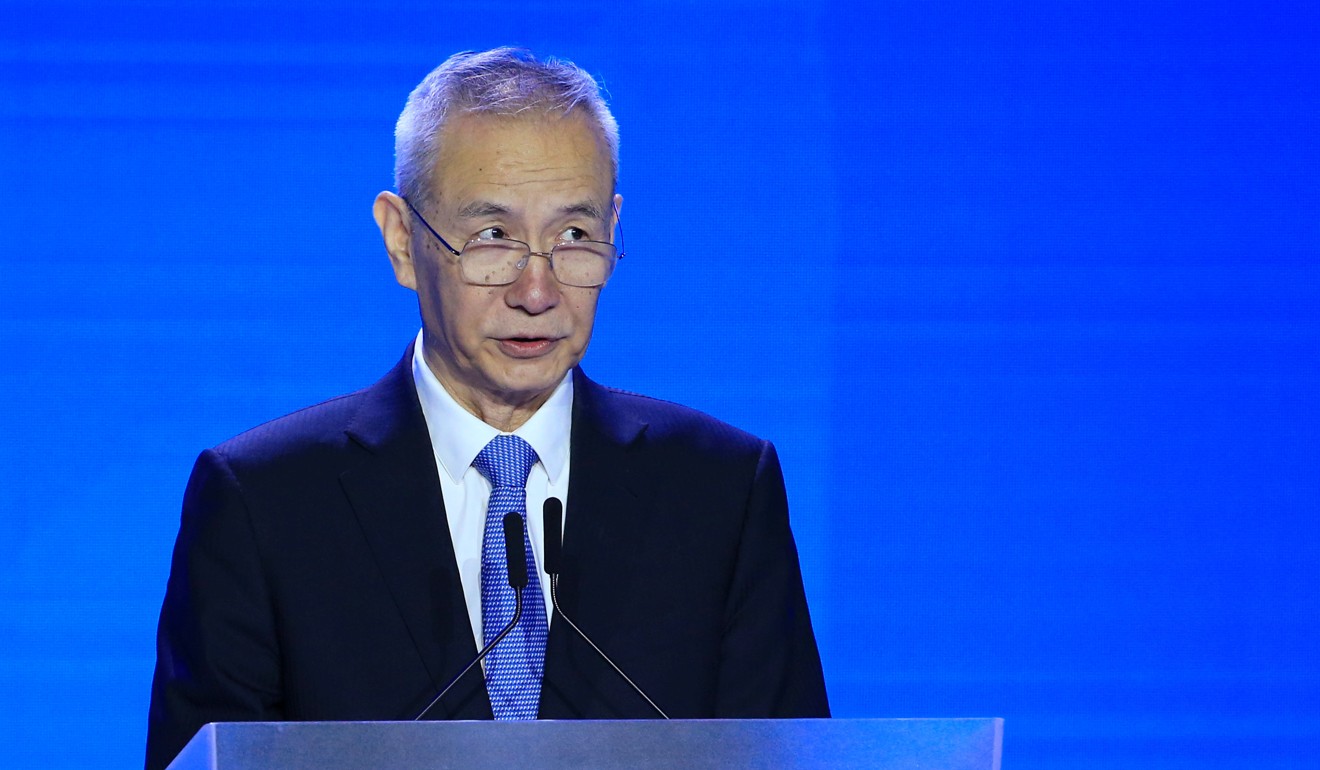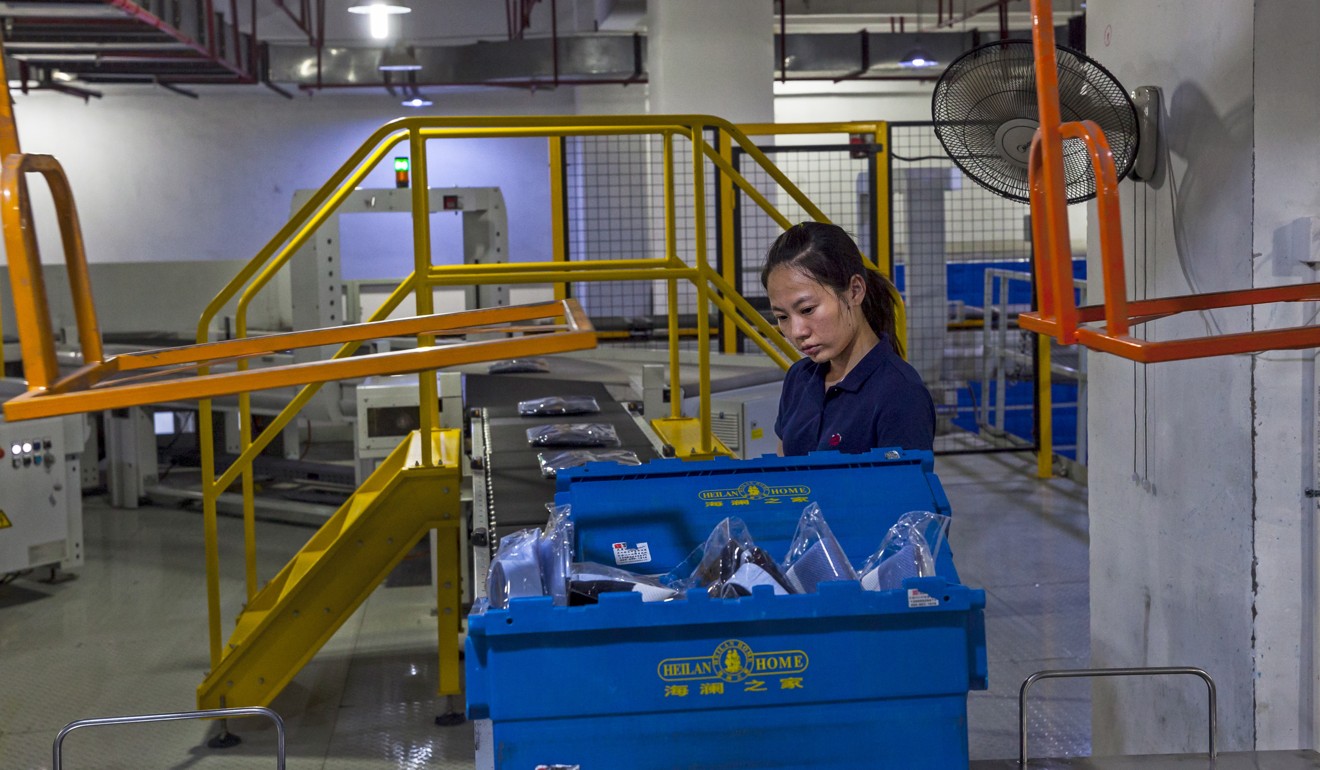
Donald Trump threatens to slap tariffs on almost all Chinese goods – more than US$500 billion – after Beijing fights back
The US president’s move to impose 10 per cent tariffs on US$200 billion of Chinese goods was seen as killing any chance of new talks taking place
US President Donald Trump is poised to levy punitive tariffs on all Chinese imports, following China’s announcement on Tuesday that Beijing will respond to Washington’s latest escalation of the trade war by imposing duties on US$60 billion of US imports.
Trump took to Twitter on Tuesday morning to say that any further action by China targeting US farmers and industrial workers would result in “great and fast economic retaliation” from the US.
The president had warned in a statement on Monday evening that such action would take the form of tariffs on the remaining US$267 billion of Chinese imports, further expanding the already unprecedented scope of the trade war.
Repeating that threat in the Oval Office on Tuesday afternoon, Trump said: “We don’t want to do it, but we probably – we'll have no choice.”
Trump announced on Monday that his administration would impose 10 per cent tariffs on US$200 billion of Chinese goods, effective next Monday, a move seen as likely killing any chance of further negotiations taking place.
The US Treasury had suggested a fresh round of talks as the trade hostilities that began between the world’s two largest economies more than two months ago ground on, a prospect welcomed by Beijing.
Following Trump’s announcement, China’s Ministry of Finance stated on Tuesday that taxes of 5 to 10 per cent on US$60 billion of American goods imported into China would be implemented to concur with Washington’s tariffs.
Contacted on Tuesday morning, a representative for the United States Trade Representative’s (USTR) office would only cite Trump’s Monday statement vowing further action in response to a request for comment on China’s retaliatory tariffs.
The latest escalation of the US-China trade clash had all but dismantled the platform for the proposed negotiations before they could even begin.
A Chinese government source, who spoke on condition of anonymity because they were unauthorised to speak publicly, told the South China Morning Post that Beijing was now reviewing its plans to send a delegation led by Vice-Premier Liu He to Washington for talks with US Treasury Secretary Steven Mnuchin.
The US Treasury did not respond to a request for comment on Tuesday morning.
Ahead of Beijing’s announcement, US Commerce Secretary Wilbur Ross told CNBC that China should not have been surprised by the Trump administration’s latest measures, and said “the question about whether or when to have a discussion is very importantly in [China’s] ballpark”.
Ross also said the US was actively pursuing action against China through the World Trade Organisation (WTO), a process the secretary said was supported by Japan and the EU. China’s Ministry of Commerce said on Tuesday that it had filed a complaint with the WTO following Washington’s latest tariff action.

Doubling down on his rhetoric against China’s trade practices during a joint press conference with Polish president Andrzej Duda on Tuesday afternoon, Trump called the US “the piggy bank to the world” and said that the country was being ripped off by everyone, including China and the European Union.
“[China] rebuilt their country with tremendous amounts of money pouring out of the United States,” he said. “And I’ve changed that around.”
Trump also accused the country of taking advantage of the rules of the WTO, following its admission into the organisation in 2001.
His administration’s threat to impose tariffs on more than US$500 billion worth of Chinese imports is likely to provoke outrage, not only from Beijing but closer to home.
At each escalation of the stand-off between the two countries, the US government has faced a vicious backlash from industry and business figures and associations, thousands of which have appealed directly to the USTR not to go ahead with tariffs because of the impact on US small- and medium-sized businesses and consumers.
But aside from adjusting the list of products affected by the tariffs, such as removing smart watches from the latest round, the administration has remained largely impervious to the efforts of lobbyists.

A US senior administration official said during a press briefing on Monday that “the tariffs are having an effect on China, and so far they haven't really had much of an effect on the United States”.
Such claims have been strongly disputed by business experts and former US government trade negotiators.
After the administration announced a plan to slap 10 per cent tariffs on US$200 billion of Chinese goods, increasing the duties to 25 per cent, effective January 1, the head of the US Chamber of Commerce said such action ran counter to the pro-growth policies on which the US economy operated.
People who claimed that imposing trade tariffs on China would not hurt the US economy were “fooling themselves”, Susan Schwab, who served as the US Trade Representative in the administration of former US President George W. Bush, told an event hosted by the Centre for Strategic and International Studies on Monday.
Another critic of escalating the trade war via tariffs was the head of the China-based American Chamber of Commerce (AmCham), who said Washington’s latest action would hurt, not help, US businesses operating in China.
Appearing to counter Trump’s previous claim that tariffs imposed by his administration would bring home US businesses and manufacturing, AmCham chairman William Zarit said only 6 per cent of the group’s member companies have said the trade war will cause them to consider shifting their operations back to the US.

